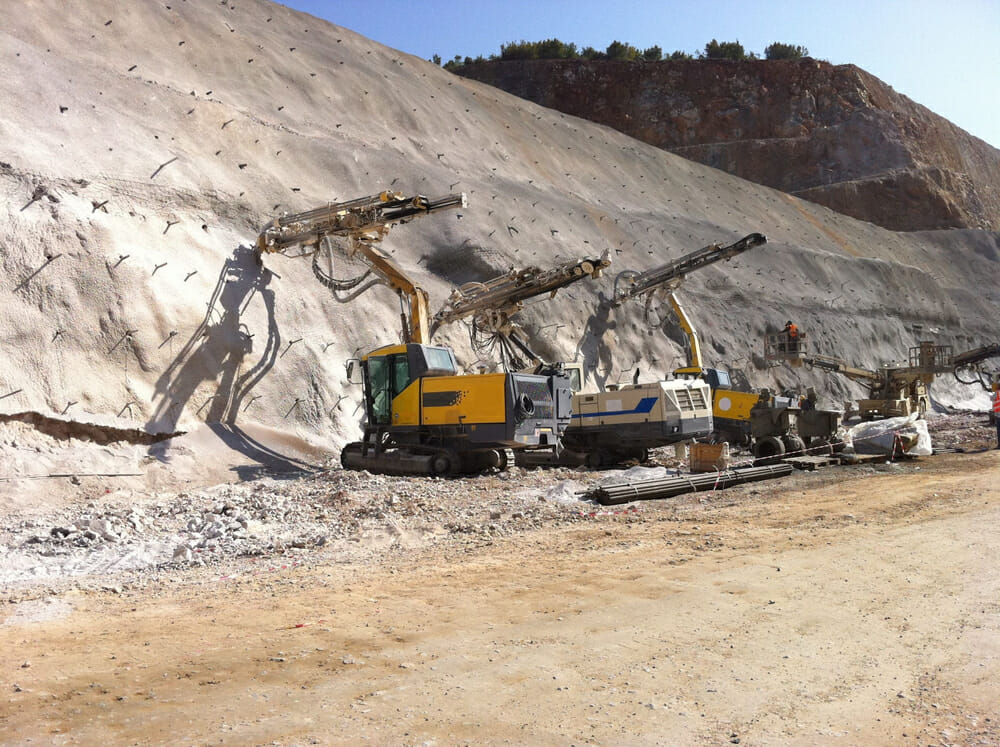If you’re in the roadworks and construction industry, you know the important role that soil testing plays in forming the structural foundation of creating a new roadway or repaving an existing transport route. Geotechnical investigations help to ensure a safe process by identifying the types of soil that underlay your proposed development site, including whether or not you’re working predominately with sand, silt, clay, gravel, or any of the various other combinations that may be present. In addition, soil testing also helps to assess the characteristics of the soil under various conditions including moisture exposure, loading, stress, extreme temperatures and more. The data amassed through evaluating subsurface soil conditions helps to ensure a safe construction process, as well as a final result that’s able to stand up to the demands of heavy traffic and the Canadian climate.
As a leading Geotechnical engineering firm, ProtechGeo is proud to partner with clients across Alberta for roadway construction, providing comprehensive soil evaluations and recommendations for job sites. Below, we’ll discuss just a few of the methods and kinds of tests involved in evaluating soil for construction purposes. Read on to learn more.
Soil Testing Methods
In order to ensure the uniformity, reliability and accuracy of materials testing, geotechnical engineers and specialists adhere to international standards that all for test results that are easily cross-referenced by any and all testing parties. Popular areas/methods of testing include:
Moisture Content
Moisture content is one of the most important attributes identified by a geotechnical test and can be evaluated both in the field or in a laboratory as needed. Moisture content is typically tested via the oven drying method where the water is removed via heat and then expressed as a percentage of the dry mass of soil.
Soil Index Properties
Soil index properties refer to the classification of soil for engineering and construction purposes and help distinguish between plastic soils (clay), which are typically quite cohesive and non-plastic soils (sand and gravel), which are loose. Both types require specific construction methods for a safe build.
Compaction
Compaction and CBR tests help to identify the maximum dry density with standard compactive effort, which will help ensure a final product that stays strong under heavy traffic as well as when subject to fluctuating temperatures and environmental conditions.
Consolidation
Soil consolidation refers to the process in which the volume of saturated soil decreases due to applied stress. Consolidation evaluation is important when considering the final foundation design.
When all of these elements, as well as the several others that are typically involved, are investigated by an experienced team of geotechnical engineers, the end result is a report that clearly details any material considerations as well as existing hazards you need to be aware of when building a roadway. With the right knowledge in place, you (alongside the help of your experts) can design a construction plan that accounts for all necessary elements and guarantees long-term success for all parties and future occupants involved. Simply put, soil testing helps your roads stay safe today, tomorrow, and in the many years to come.
Ready to Let the Rubber Hit the Road?
Based in Edmonton, Alberta, ProtechGeo is a forerunner in Western Canada’s geotechnical engineering consulting sector. We are proud to offer a comprehensive range of services, including materials testing, project management, field testing, lab testing, and more. You can count on our highly experienced team to meet your geotechnical engineering needs, all while providing exceptional customer service and being highly responsive throughout the duration of your project. Contact our team today to learn more.

